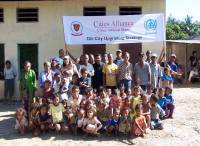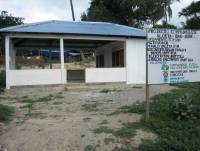Background and Objectives

On 20th May 2002, the small nation of Timor-Leste (population 880,000) became the world’s newest nation after more than 400 years of Portuguese colonisation and 24 years of Indonesian occupation. The militia led violence and destruction following the referendum for Independence from Indonesia in September 1999 resulted in extensive physical destruction and the break down of the institutions of civil society. The country was systematically destroyed. Over two thirds of the population was displaced, 40% of the housing stock destroyed (aprox. 68,000 houses) and the civil sense disseminated as Indonesian nationals fled. Dili, the nation’s capital (population 120,000), was the hardest hit with over 50% of the capital city buildings destroyed and extensive destruction to physical infrastructure including the country’s only port, airport and major Government buildings. While much had been achieved in the first four years by both the UN and the first Government of Timor-Leste in rebuilding the city wide essential infrastructure, there was a clear need to develop sustainable models for active community participation in planning for and implementation of small-scale improvements to the living conditions. There is a growing realization in Timor-Leste that the local community will need to take a more active role in community development initiatives. This is particularly so given the considerable reduction in both the size and financial capacity in the Government following the end of Indonesian role. Active community participation is a big challenge in a society where community organization and participation in decision making has been extremely limited and actively discouraged under the Indonesian occupation.
Results

The project team undertook pilot upgrading activities in four communities in urban Dili and followed the steps of the Community Action Planning process. Twelve selected projects of varying complexities were fully completed in October 2005. These projects included local roads, rehabilitation of drainage systems, rubbish collection points, a community hall, water supply and sanitation facilities. The projects assisted about 3,000 people living in the pilot areas. As a result of the project, through learning-by-doing, staff of the Community Development Unit, established by the project, was trained in planning and guiding community-based projects. The Unit was integrated in the Ministry after the completion of the Dili City Upgrading Strategy Project.
Development Partners / Partners
Development Partners: The Cities Alliance
Partners: Ministry of Public Works; Government of The Democratic Republic of Timor-Leste






































